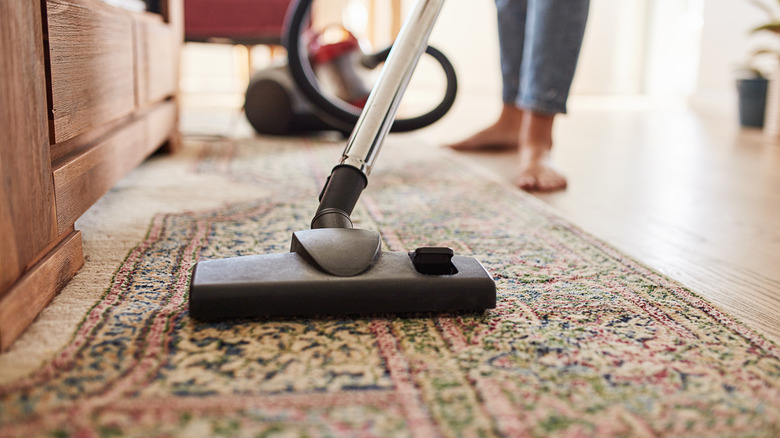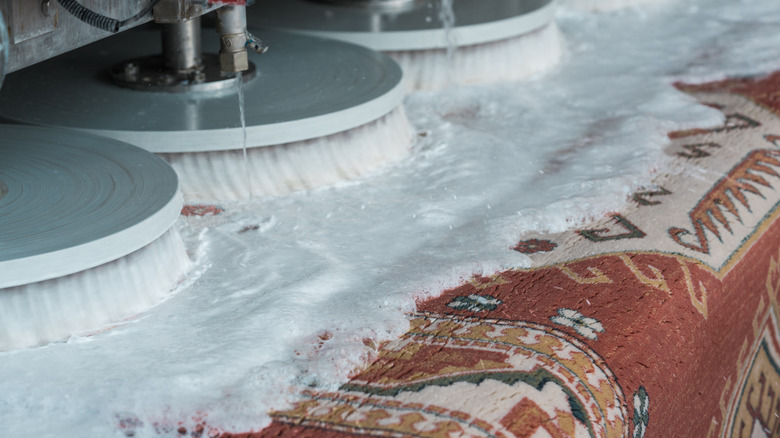Our Rug Expert Reveals The Germiest Carpet Materials
We all know that the rugs in our home can become filthy over time even with regular cleaning, but it turns out that some rug materials may trap more dirt than others. Kash Sobhe, one of just a few certified master rug cleaners, certified color restoration specialists, and certified fiber care specialists in the nation, spoke exclusively with House Digest about what materials can cause rugs to become the germiest and how often you should clean your rugs. Sobhe, president of Rug Ideas, is the third generation of his family's 71-year-old company.
According to Sobhe, rugs made from more absorbent fibers are usually able to hold onto more grime, dirt, and germs than other materials. "Plant-based fibers such as cotton and regenerated fibers such as viscose (from wood pulp) tend to be more absorbent than other fibers such as wool, for example, which organically has an oil coating that [tends] to repel dirt and moisture more," Sobhe explained. "Therefore cotton and viscose tend to absorb and hold more dirt, soiling, moisture, and with that could come germs as well."
How to clean cotton and other plant-based or regenerated fiber rugs
Kash Sobhe explained exclusively to House Digest the best way to clean rugs that typically pick up more germs and dirt. Like most carpets and rugs, Sobhe suggests vacuuming weekly and ensuring that you do a thorough job rather than just quickly running the machine over the material. Additionally, your cotton or absorbent rug will need to be professionally cleaned at a rug facility once every one to three years.
While you may consider using a carpet cleaner to give your rug a DIY deep clean, Sobhe warns against this as it could damage your rug or cause new problems. "In home cleaning not only doesn't get the dirt and soiling out, it can also leave your rug too wet and cause molding due to not being dried properly," he said. By vacuuming your rug very well once a week and taking the time to have it washed by professionals every few years, you can prevent the dirt from accumulating too much.
The importance of keeping your rugs clean
Though this advice may make it seem like it's better to have wool rugs, Kash Sobhe exclusively told House Digest that any kind of rug can enhance your home as long as you're keeping it clean. While Sobhe suggests that rugs can wait up to three years before being professionally cleaned, he has his done every six months to a year. Sobhe also explained that keeping your rugs clean is crucial for better indoor air quality.
"Something very fascinating to me is that having clean fibers in your home could literally mean a cleaner air being breathed in your home. Fibers do a great job at withholding dust and dirt that otherwise falls on your hard surface, gets blown or kicked back into the air, and then breathed in," Sobhe said. "So having rugs and fibers can act as a natural air filter for [your] home. But [the] key to having this home filter work great is to keep it clean and maintained." By putting in the effort to keep your cotton, viscose, or other rugs made from plant-based or regenerated fibers clean, you can stop them from becoming a breeding ground for germs.



